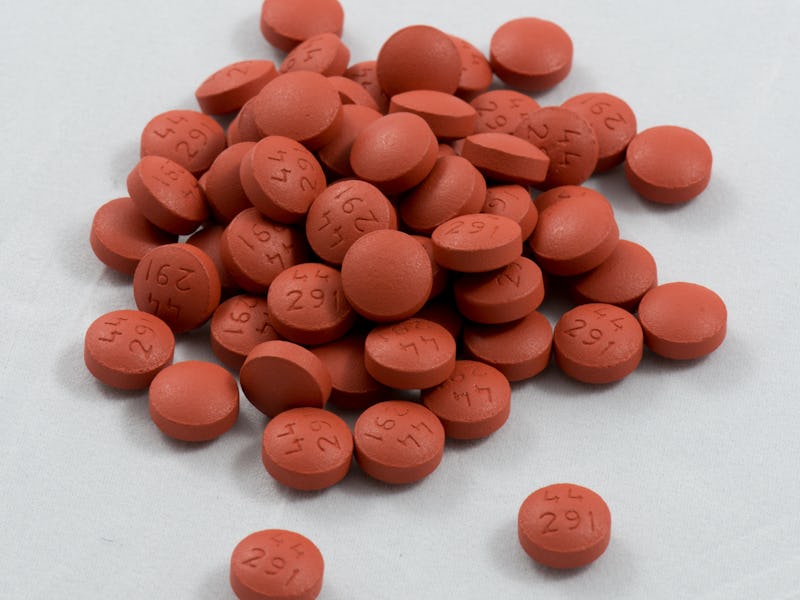Ibuprofen Associated With Fertility Problems in Men, Study Finds
Next time you feel a headache coming on, think twice about what you're taking.

The next time you’re reaching for a tablet of Advil or Motrin for a quick cure to a headache or back pain or something, you might want to find another pain reliever of choice — especially if you’re a man with a family plan. A new study published Monday in the Proceedings of the National Academy of Sciences found ibuprofen can harm testicles and lead to impaired fertility in men.
The study, led by a group of Danish researchers, is part of a broader investigation of the physiological side-effects of regular use of over-the-counter pain relievers. It’s a direct follow-up of studies on how aspirin, acetaminophen (better known by the brand name Tylenol) and ibuprofen (of which Advil and Motrin are the most well-known brand names) affect pregnant women, finding that each of these medications adversely affected testicles of male babies while inside the womb.
Ibuprofen use is particularly common among athletes who use over-the-counter pain relievers quite frequently. The research team found 31 male volunteers between the ages of 18 and 35, and gave 14 participants daily doses of ibuprofen of about 600 milligrams twice a day — a rate that’s fairly common for professional and amateur athletes alike. That’s the same maximum dosage recommended by drug makers and listed on the label of products like Advil and Motrin. The rest of the volunteers were put on a placebo.
After just 15 days, the researchers observed signs of dysfunction in the testicles for the men taking ibuprofen. The body’s pituitary glads secrete what are called luteinizing hormones that simulate testosterone production by the testicles. Regular ibuprofen use, it turns out, starts to modulate the rates and levels of luteinizing hormone secretion, as well as causing the ratio of testosterone and luteinizing hormones in the blood to decrease.
As a result, the participants started experiencing what’s called compensated hypogonadism, which can lead to decreased fertility, depression, and higher risk of experiencing heart failure or stroke.
The researchers followed up the trial with lab studies of human testicle samples provided by organized donors, verifying that the impact ibuprofen has on testicles and testosterone even outside the body.
There are two big things worth mentioning here. The first is that the sample size for the clinical side of the study is extremely small, so even with the lab experiments, the results as a whole really need to be taken with a grain of salt. The second thing is that with how quickly ibuprofen use affected testicular activity, the research team thinks the effects are pretty easily reversible.
Questions arise, however, whether those same effects are reversible even after long-term use. For athletes or patients with chronic pain, who have used ibuprofen for years, it’s unclear how permanent those hormone changes might be, or to what extent the negative impacts on fertility could be rectified.
Although the study is small, it’s bound to jumpstart greater investigations into how over-the-counter pain relievers affect fertility, given how popular the use of these drugs is. Men using ibuprofen might want to switch to a different drug of choice the next time they feel a headache coming on.